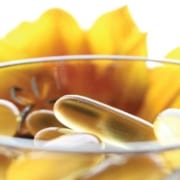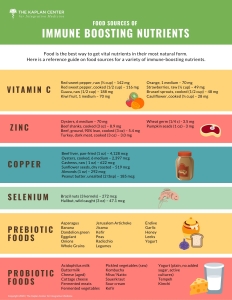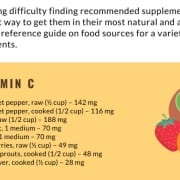With migraine headaches, it’s important to look beyond the symptom to target the disease.
Lindsay was 23 years old, fresh out of college, and working at her dream job in Washington, D.C., as a congressional aid. Working in Congress, 10-hour days are the norm and for Lindsey, typically the first to arrive in the morning and last to leave in the evening – that was a short day.
She was in charge not only of the Senator’s schedule but also required to be at his side taking notes at all his meetings, as well as keeping him informed as to who he was meeting with and why.
Young, energetic, with an excellent memory and a gift for attention to detail, Lindsay was a rapidly rising star in the highly competitive world of Capitol Hill. When we met, Lindsay was clearly intelligent, completely charming, and terrified that everything she had achieved could be completely undone by progressively crippling migraines.
She had suffered from migraines since she was 16 and had seen several physicians, including neurologists. Yet despite trials of numerous medications, the headaches had become more frequent and debilitating within the last year.
According to the American Migraine Foundation, 1 billion Americans of all ages suffer from migraines. Women are disproportionately affected, impacting approximately 1 in 5 American women versus 1 in 16 men.
For most migraine sufferers, the attacks occur one to two times a month or less, but about 4 million people agonize with a migraine 15 days or more a month. Migraine headaches are regarded as one of the top 20 of the world’s most debilitating medical illnesses.
Most physicians treat migraines as a disease, when in fact, they may be a symptom. By this, I mean that if you go to your doctor complaining of headaches that are diagnosed as migraines, the appointment typically ends with a prescription for medications to either prevent the occurrence of the headache or treat the acute headache, with little if any testing.
It’s rare for any consideration to be given to why you get the headaches. But, if you can find the underlying cause, you have a much better chance of finding the cure.
Here are five frequently overlooked causes of migraine headaches:
Celiac disease is an autoimmune disease to gluten, a protein found in the grains wheat, barley, and rye. About 1% of the population suffers from Celiac disease and unfortunately, it’s estimated that over 80% of the people with Celiac disease are undiagnosed.
Gluten intolerance (GI) affects about 6% of the American population. GI, while not associated with the damage to the lining of the small intestines as seen in Celiac disease, can make you almost as sick as Celiac disease.
Because eating grains causes Celiac disease and GI, we tend to think that this is an intestinal problem and expect to see people complaining of abdominal symptoms such as bloating, diarrhea and abdominal pain. In fact, both these diseases can present with minimal or no gastrointestinal symptoms and a large number of other symptoms including migraines, peripheral nerve damage, seizures, anxiety disorders, depression, and even schizophrenia. This was documented in an excellent review published in 2012.
You can screen for Celiac disease with a simple blood test, but we do not have any reliable testing for GI as of yet. Treatment for both conditions is the elimination of all gluten-containing foods from your diet.
2. Magnesium deficiency
This may play a role in the occurrence of migraines in up to 50% of the people who suffer from this condition. (An excellent summary of this research was published in 2012.)
Magnesium is essential for a wide range of functions in the body and unfortunately, it’s easy to become deficient in magnesium and difficult to measure with a blood test.
Low nutritional intake, excess consumption of coffee, sodas, and alcohol, chronic stress, chronic illness, and intestinal problems (such as Celiac disease creating problems with absorption of magnesium) can all lead to deficiency.
The foods highest in magnesium, such as halibut, mackerel, boiled spinach, bran breakfast cereal, and nuts such as almonds, cashews, and pumpkin seeds, are not foods that typically make up much of our diets.
I encourage my patients suffering from migraines to make the necessary dietary changes and to supplement with between 250 and 500mg of magnesium a day.
One of the side effects of taking magnesium is diarrhea. If you develop diarrhea while taking magnesium, decrease the dose or try switching the type of magnesium you are taking.
We also treat many of our migraine patients with IV magnesium.
The temporal mandibular joint (TMJ) is the joint where your jaw connects with your skull. The joints are located in front of your ears on either side of your face. If your teeth are misaligned or you grind your teeth, a condition called bruxism, you can develop dysfunction and pain at the TMJ.
Symptoms of TMJ dysfunction include popping of the joint, pain at the joint, difficulty opening your mouth, and headaches. Proper diagnosis and treatment require that you see a dentist familiar with this condition. The headaches caused by TMJ can be misdiagnosed as migraines and TMJ can be a trigger for migraines.
4. Thyroid disease
Both low and high thyroid levels can cause headaches. Thyroid disease, usually associated with fatigue, dry skin, and hair loss when thyroid levels are low, and rapid heart rate and anxiety when thyroid levels are high, may present with migraine as the only significant symptom. This so-called subclinical presentation of thyroid disease can also be seen in adults and children.
Diagnosis can be made with a simple blood test.
This is highly controversial, but in my experience, mold toxicity is a significant cause of many diseases, including migraines. Molds can produce allergic reactions when inhaled, but the bigger concern is the toxins called mycotoxins that are chemical toxins present within or on the surface of the mold.
Mold toxins can affect almost every organ in the body, but the brain is almost always affected, resulting in neurotoxicity. People with mold toxicity have complaints that vary from mild cognitive impairment to symptoms that look like multiple sclerosis.
Headaches are a common complaint of people suffering from mold toxicity. Mold toxicity should be considered in anyone who has migraines and a history of exposure to water-damaged buildings where mold grows. Unfortunately, very few doctors know about this condition or how to evaluate a patient for the problem. For more information on mold toxicity, see the Biotoxicity and Neurotoxicity page on this website or visit Dr. Shoemaker’s website SurvivingMold.com.
As it turns out, Lindsay’s migraines were a result of being gluten intolerant and having low magnesium levels. Once she eliminated all gluten from her diet and improved her magnesium levels with magnesium IVs, her migraines dramatically improved.
We are here for you, and we want to help.
Our goal is to return you to optimal health as soon as possible. To schedule an appointment please call: 703-532-4892 x2











